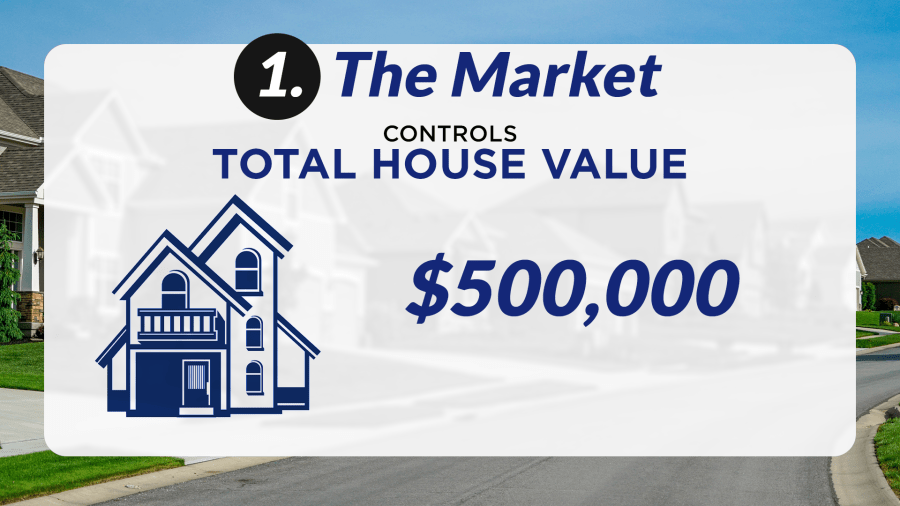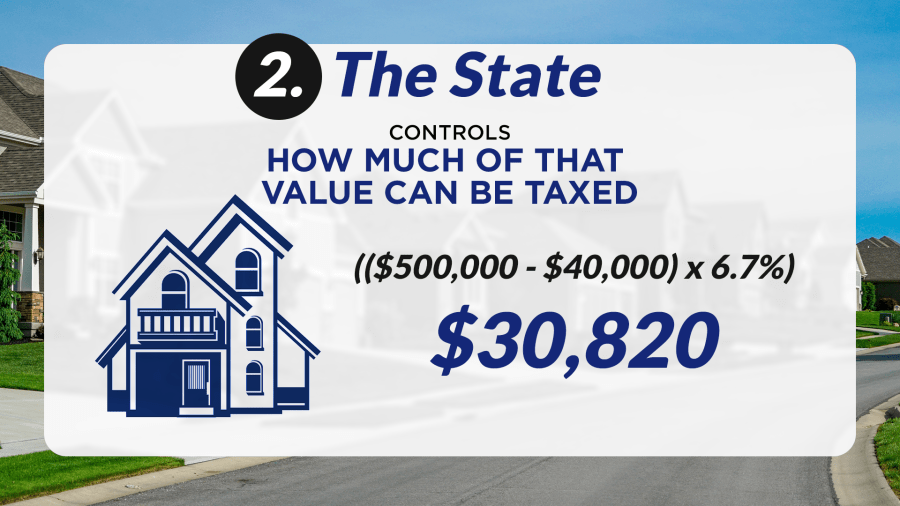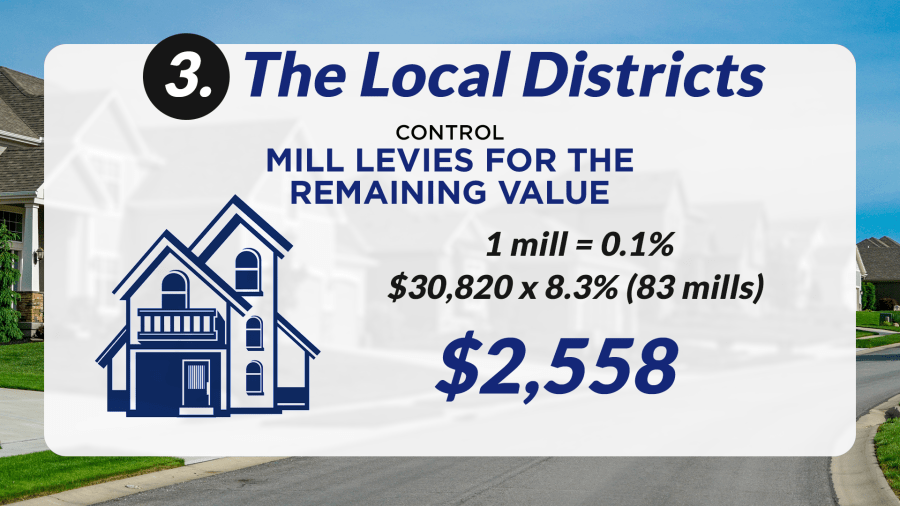DENVER (KDVR) — As home values are soaring across Colorado, so could the amount property owners pay in taxes. Gov. Jared Polis announced a plan Monday that would soften the impact of how much people will pay in property taxes in 2024.
The state already passed property tax relief in 2022, but this new plan would create a mechanism to provide relief over a longer term.
Last week, county assessors warned homeowners about valuations that are coming in the mail, as values shot up roughly 33% to 47% across the Denver metro area. The county’s valuation of your property is the first step for calculating property taxes.

To help you understand how property taxes are calculated, the Problem Solvers used a template from the Bell Policy Center with an example of a home worth $500,000.
Colorado already knocks off $15,000 worth of value from your home, because of the property tax relief package in 2022. Polis’ proposal would take even more value out of the equation, knocking off $40,000 in value.
The Polis proposal would also lower the statewide assessment rate to 6.7%. In our example, that would mean $30,820 of a $500,000 home could be taxed by your local county.

President of the Bell Policy Center Scott Wasserman said this mechanism of knocking off value on the front end of the equation will be a bigger benefit for homeowners of lower-value homes.
“The reason why this is so helpful is that it helps owners of lower-value homes more than high-value homes,” Wasserman said. “So $40,000 for someone who owns a $500,000 home is much more meaningful for someone who owns a million-dollar home.”
What could impact property taxes even further are the rates set by local county officials through what’s known as a mill levy. Using the statewide average of 83 mills, the example for property taxes on a $500,000 home would end up being a $2,558 tax bill for the entire year under the governor’s proposal.

The governor’s office estimates this will cut the average homeowner’s tax increase in half, from more than a $1,000 increase to more than $400. The $40,000 in reduced tax value will apply in 2023, and 2024 and continues the practice in future years for primary residences.
The latest census data suggests Colorado’s homeownership rate climbed from roughly 65% in 2021 to nearly 70% in 2022. Polis was asked how this measure would impact those who rent in the state.
“If the property tax bill was scheduled to go up $1,100 a year, that’s basically passed along to renter,” Polis said in a news conference. “If we reduce that to $500 per year, that’s what gets passed along to renters. So renters benefit directly from reducing the property tax rate that also impacts the home they happen to rent.”
That assumes the landlord only charges an increase in rent proportional to the tax increase.
TABOR surplus funds proposed for backfill
The measure also uses TABOR surplus money to backfill any funding for public education, fire districts, water districts, ambulance and hospital districts. The use of Taxpayer’s Bill of Rights funds is a part of the proposal that drew criticism from Republicans in Colorado’s House of Representatives.
“While we at the Capitol were making too many new laws that were way too expensive, real Coloradans across the state have been opening up their mail and finding tax bills they cannot pay. Democrats and the Governor waited until the last minute to fix a problem they knew was coming all along. House Republicans have been raising this urgent issue for months, if not longer. The Democrats cannot treat TABOR like an ATM machine to resolve the state’s financial issues, most of which are self-inflicted. The people of Colorado should be skeptical of the Governor’s hastily introduced plan with only one week left in the session. He seems to want to convince us this plan will solve all financial shortfalls, such as school funding, teacher pay, fire and police, and resolve Colorado’s property tax issues for homeowners and businesses. Given this sugar-coated plan must be approved by voters, it’s concerning the Governor has no PLAN B if it fails.”
House Minority Leader Mike Lynch, R-Wellington
If the governor and Democrats are able to pass this bill before the end of the session, it would create a proposition that would need statewide voter approval during the November election.
